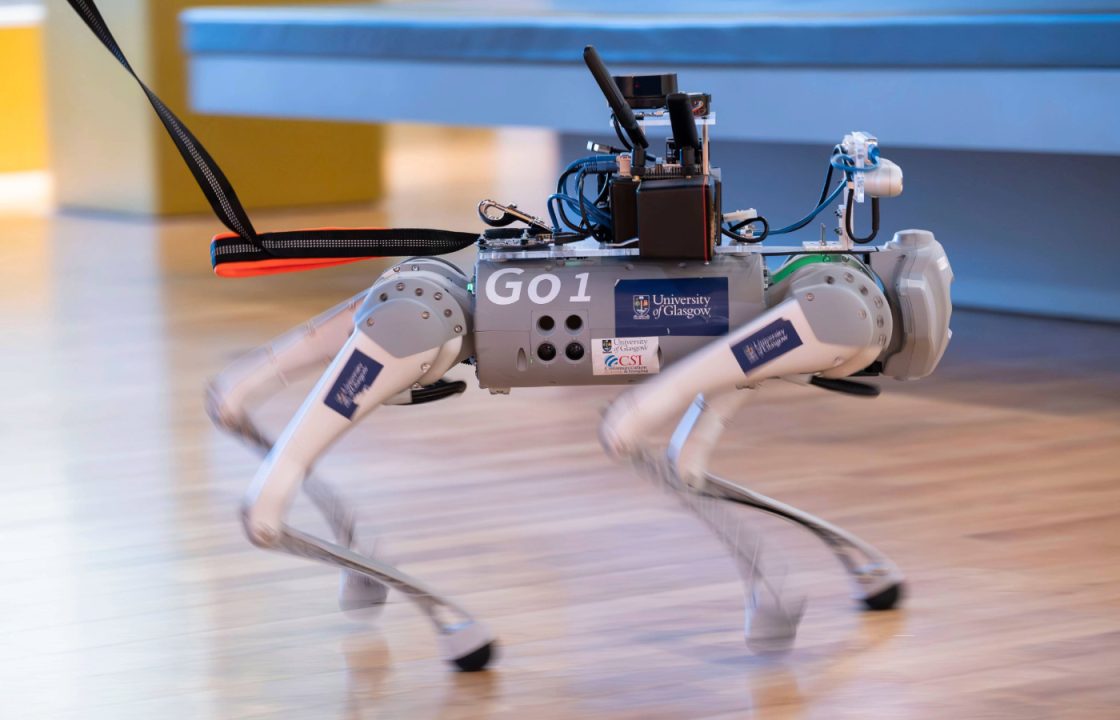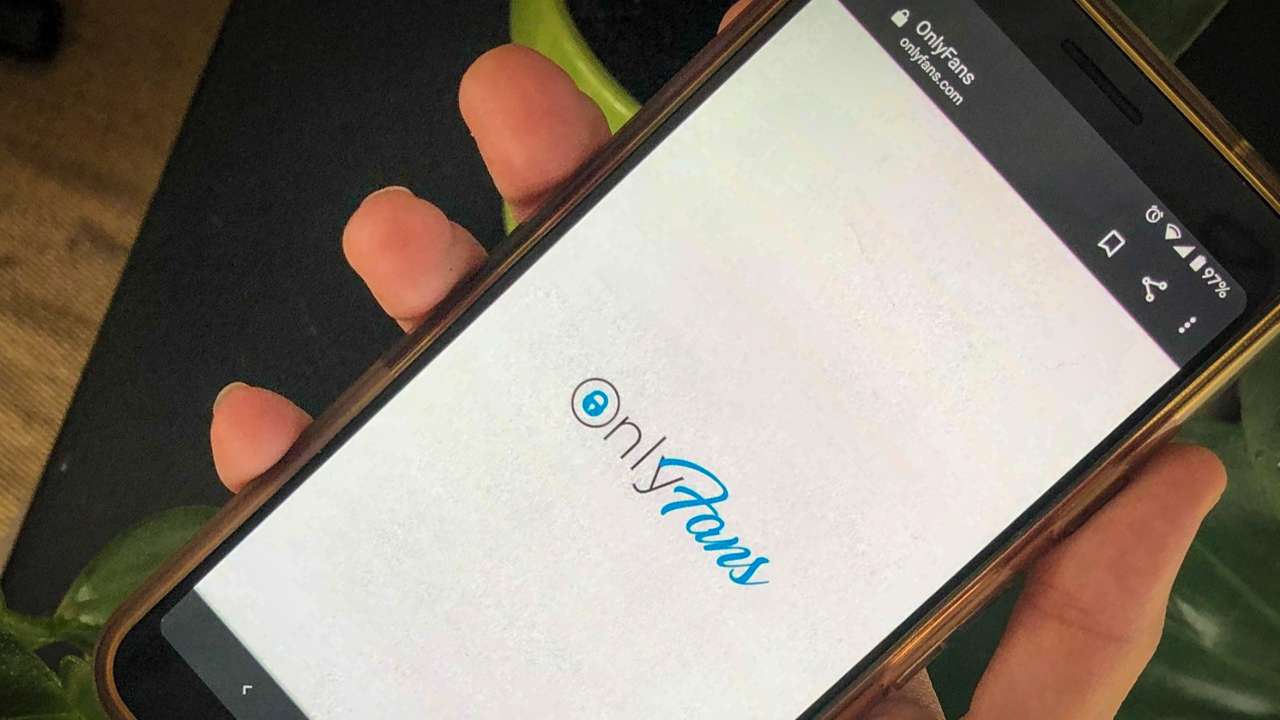A robot guide dog that can talk has been developed by experts at a Scottish university.
The University of Glasgow’s assistive technology project has created the AI-powered four legged helper dubbed RoboGuide.
The robotic pooch aims to aid blind and partially sighted people to navigate indoor public spaces such as shopping centres, museums and hospitals.
Researchers at the university have also developed a function for the robot to communicate with its user and to provide verbal responses in the hope of having intelligent conversations.
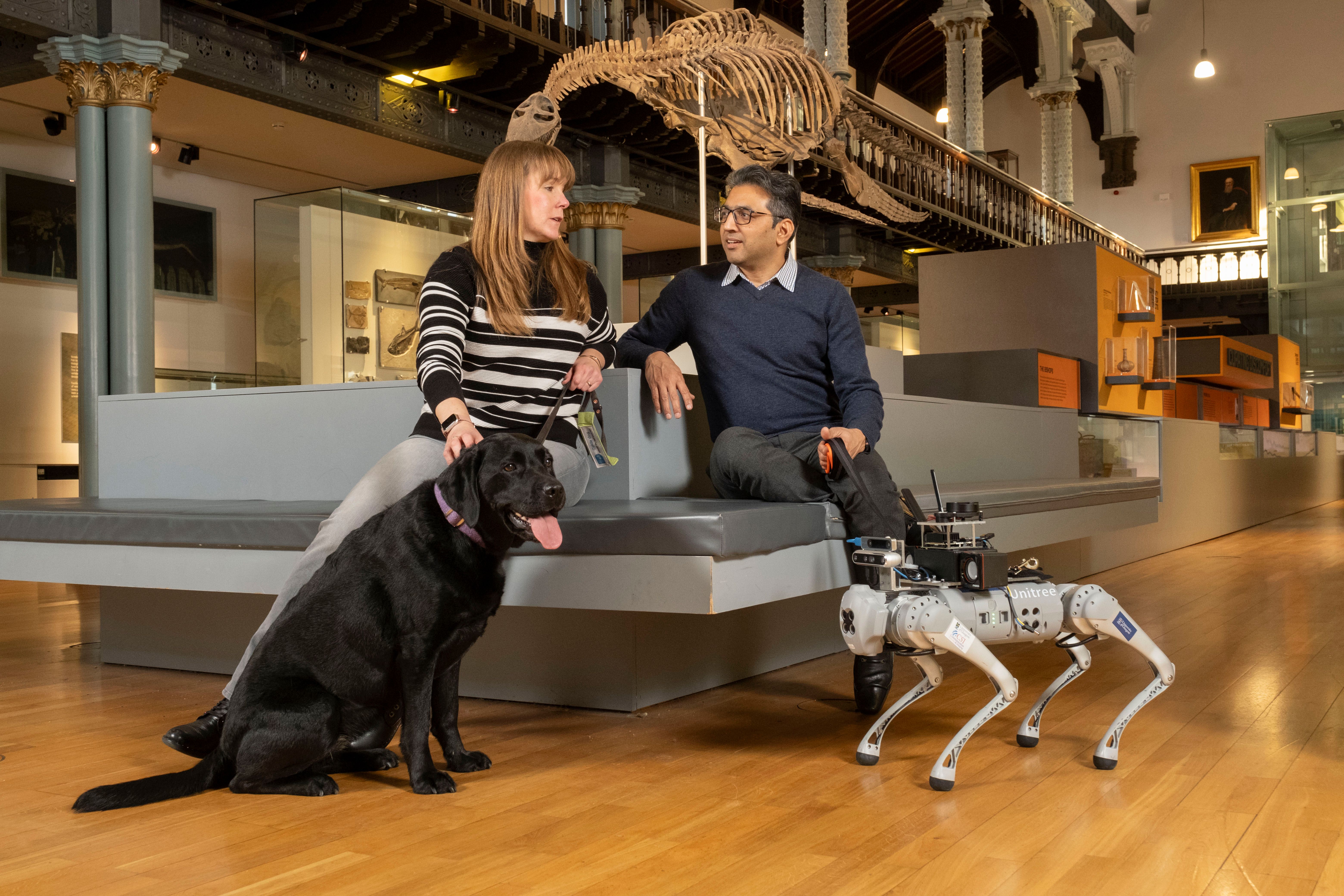
The RoboGuide project hopes to be the catalyst for more technology that could go to market in a bid to help more than two million people in the UK suffering from sight loss.
Prof Muhammad Imran, dean of graduate studies at the university’s James Watt School of Engineering, who is co-investigator on the project, said: “Our assistive technology project for the visually impaired embodies innovation, fostering inclusivity.
“In Glasgow, we’re pioneering world-changing technologies that hold the potential to transform lives and reshape societal norms.
“This achievement was made possible through collaboration with industry and charity partners and co-creating the design with the invaluable input of end users.”
Dr Olaoluwa Popoola, the RoboGuide project’s principal investigator, said: “Assistive technologies like the RoboGuide have the potential to provide blind and partially sighted people with more independence in their daily lives in the years to come.
“One significant drawback of many current four-legged, two-legged and wheeled robots is that the technology which allows them to find their way around can limit their usefulness as assistants for the visually impaired.
“Robots which use GPS to navigate, for example, can perform well outdoors, but often struggle in indoor settings, where signal coverage can weaken.
“Others, which use cameras to ‘see’, are limited by line of sight, which makes it harder for them to safely guide people around objects or around bends.”
The Forth Valley Sensory Centre (FVSC) Trust (FVSC) and the Royal National Institute of Blind People (RNIB) Scotland participated in a test of the technology at the Hunterian in December.
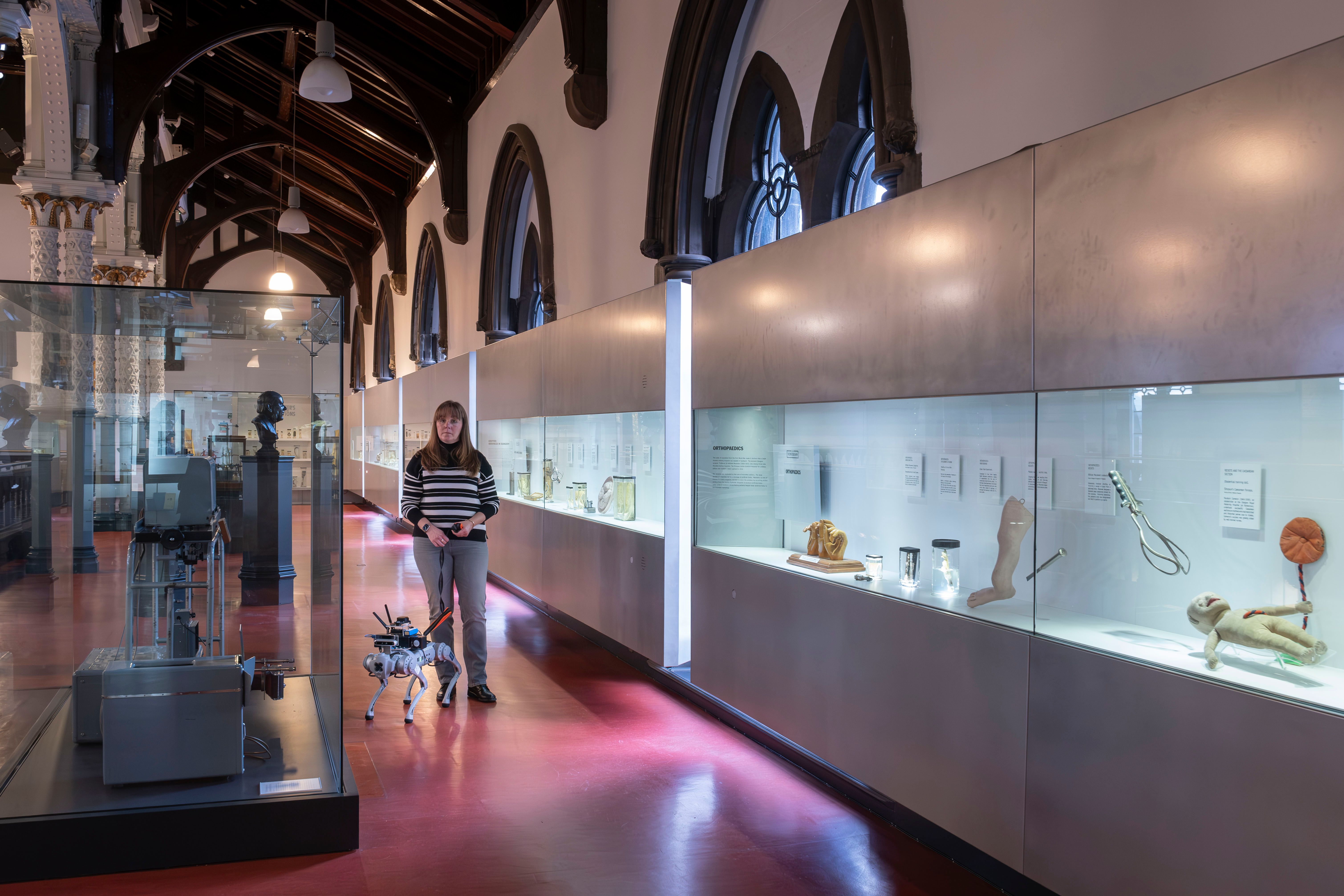
The two charities are lending their support to the university in showcasing the AI-powered canine.
Dr Wasim Ahmad, of the James Watt School of Engineering, said: “We’re pleased to be working closely with the FVSC and RNIB Scotland to test the RoboGuide in real-world environments, and to integrate their feedback into more refined iterations of the technology.
“Ultimately, our aim is to develop a complete system which can be adapted for use with robots of all shapes and sizes to help blind and partially sighted people in a wide range of indoor situations.
“We hope that we can create a robust commercial product which can support the visually impaired wherever they might want extra help.”
Jacquie Winning MBE, chief executive of the FVSC, said: “Mobility is a big issue for the blind and partially sighted community. RoboGuide is a wonderful solution to that problem, and we are delighted to help test this innovative and creative robot.
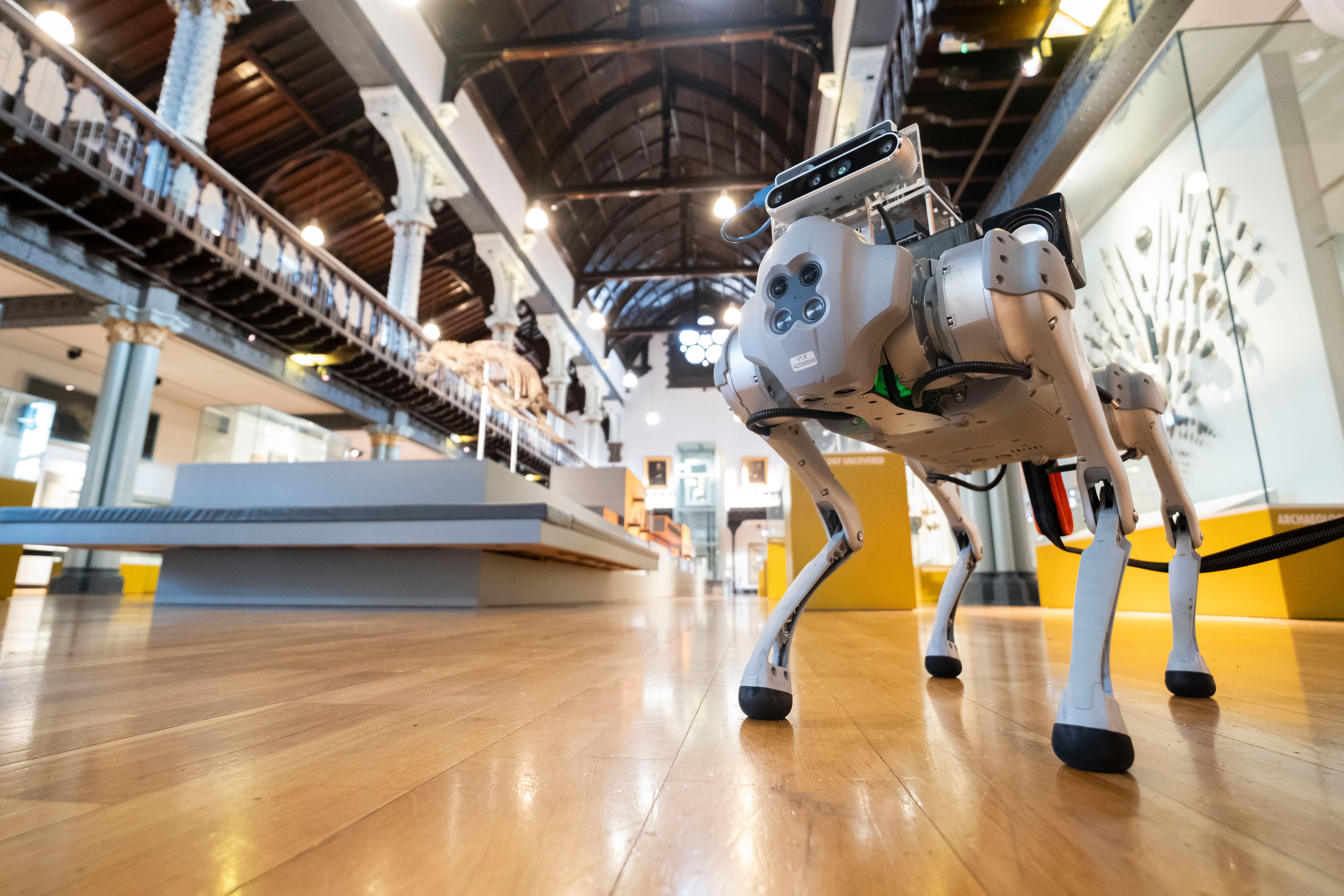
“We are pleased to play our part in helping to harness the power of new technology to improve the independence and confidence of people with sensory loss and make sure they can live their lives to the full.”
James Adams, director of RNIB Scotland said: “We’re delighted to be supporting the research and development of technology that could be part of making the world more accessible and empowering blind and partially sighted people to live their lives confidently.
“Technology innovations like this are reshaping the future of accessibility and this partnership demonstrates their burgeoning potential to create of a more inclusive world.”
Follow STV News on WhatsApp
Scan the QR code on your mobile device for all the latest news from around the country


